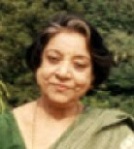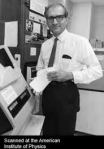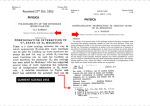The country’s 67’th, my third, and the Kendriya Vidyalaya, University of Hyderabad’s first. Some excerpts from my speech today:
 Members of the UoH Family, Let me start by first conveying my warm wishes and greetings on the occasion of the 66th anniversary of our nation’s Independence.
Members of the UoH Family, Let me start by first conveying my warm wishes and greetings on the occasion of the 66th anniversary of our nation’s Independence.
Today we are- as we have been for the past many years- living in interesting times. We appear to be in a state of perpetual flux, with the scenario changing frequently in dimensions that are political, economic, and with consequences of an immediate, as well as of a long-ranging nature.
Combining independence with responsibility has been a challenge not just for our campus, but metaphorically, for our nation as well. The day of independence that we celebrate or mark each year, brought the nation the responsibility of forging a modern state, one where all citizens could aspire to a life that was better, because it was free, and because we had self-determination and self-governance, swaraj. In the nearly seven decades that have passed, it is clear that we have tried hard and that we have made great strides, but it is also clear that we have far to go on so many fronts.
This is the third time I have stood here to speak on this occasion, and since last year there have been many changes that we have seen happening around us. As anticipated, the XII plan grant has not been as generous as we had wanted, but there have been rays of hope and promise on many fronts. The University has had a preeminent position in the country with respect to its commitment to excellence in research and teaching. Having seen it intimately these past years, I know that the foundation is very solid, and the base is a strong one. In the past month, in recognition of the fact that twice the UGC has declared us to be a University with the potential for excellence, we are now designated simply as University of Excellence. This is not to say that all the potential has been realized- we more than others are acutely aware of the many miles we have to traverse and the many goals we need to score- but still, we are I believe, a University with the Promise of Excellence. This appellation comes with a heavy responsibility, and that is the responsibility to continue to deliver in the future, as we have in the past, good students, good programs, and good, solid research.
Our faculty and students have been recognized nationally and internationally- this year’s Amartya Sen award, the SCOPUS young scientist award, the Child and Adolescent Mental Health Award, the B M Birla Award, several KVRSS awards, AP State Football championship… the list is a long one.
Similarly, many individual disciplines have been recognized for their excellence as well. PURSE, the programme of the DST for Promotion of University Research and Scientific Excellence will shortly enter its second phase, our Centre for Research and Education in Biology and Biotechnology or CREBB, similarly, is up for renewal and extension. A crucial and significant new addition to the University is the School of Education that has been granted recently by the UGC. I believe that with the addition of this important discipline, we will be able to make progress in a crucial dimension, the marriage of instruction with technology. I see that in the coming years we will be able to reach out to larger and larger numbers of our fellow citizens in the country and thereby fulfill the responsibility that we all share, namely of educating the bulk of the country to create a modern state.
Our concerns are many. As I have mentioned on earlier occasions, we are blessed to occupy this campus, this environment, this land. Our efforts to secure the land for the future of the University and for the purposes of education are still on: that road is a long and tortuous one, strewn with unexpected hurdles, but it is one that we are firmly committed to. For this purpose, we now have a detailed master plan for the campus.
Our commitment to the environment extends to the preservation of the biodiversity, of the varied habitats, of the fauna and flora, the lakes the rocks. One achievement that attracted considerable national attention is our action of using the roof of the Library for harvesting solar power and making this building almost self-sufficient and independent of the state electricity power supply. This coming year we will do more, and while we reduce our expenditure on power, we will also contribute to building a greener campus. And a more sensitive campus as well. The Ministry for Social Empowerment has responded positively to our disability audit, and our request to make all our buildings accessible to disabled students, and in the first instance they have funded us to do so for sixteen of the main academic buildings. Our lakes remain a source of concern, and our efforts to clean them, deepen them, and improve the ground water resources in this part of the city are also always afoot. Similarly, our campus has been invaded by the subabool tree species in a manner that is harming the native flora of this part of the Telangana region. These need careful culling and replacement, and we will undertake to do this shortly.
Within the University administration there have been many attempts to streamline procedures, and one effort that promises to serve us well is the decision to advance the entrance exams, and to make the admissions more transparent. The intake this year exceeds that of last year, and many more students have been able to apply for the several courses that we offer, although it is also true that the process needs further fine tuning.
But above all, if there is one thing that I would wish for us, it is for an increased self-confidence. We are a good, solid university, and we offer a quality of education that is difficult to come by, facilities that are well above what can be found elsewhere, superb teachers and a cohort of students that is second to none. And yet, there is a strange diffidence that permeates our functioning, something that is difficult to fathom. We are very good by any set of standards, except perhaps by our own. And this, while it should help us to reach even higher levels, appears to pull us back and hampers our own growth, both physical and intellectual. The responsibility of independence, of autonomy, is one that cannot be taken too lightly. Of late the University has been portrayed in somewhat negative light in the press and media, and I believe undeservedly so. The onus of making ours a University of Excellence is a shared one, shared by all sections of our campus community, staff, students, faculty alike. Each has a role to play, and each has one’s own sphere of operation. I urge all of you to play your roles with utmost seriousness- losing sight of our ultimate goals causes us to drift, and ultimately lets us all down. We need to change this, and now more than ever, we need to be the change we wish to see.
But this sh ould happen gradually, with deliberation, and with debate. And with wide participation so that each voice can be heard. To adapt something that I said recently in a related context, if we are to bring about lasting change in education and research in our University, there really is no alternative to slow and sustained effort. The race, such as it is, is not always to the swift. It is to those that persevere.
ould happen gradually, with deliberation, and with debate. And with wide participation so that each voice can be heard. To adapt something that I said recently in a related context, if we are to bring about lasting change in education and research in our University, there really is no alternative to slow and sustained effort. The race, such as it is, is not always to the swift. It is to those that persevere.
Jai Hind!
 I recall a conversation I had with Meenakshi Mukherjee, at one time on the faculty of the Department of English at the UoH. She was a good friend during the many years when we both were at the JNU- as it happened we moved there at roughly the same time. One day when I met her at Ganga Dhaba, apropos of nothing particular (more than usual that is) she said to me, you know, our campuses are the new colonies. Explaining herself, she added, it is like we academics create an enclave that is removed from the rest of the country, where different rules apply.
I recall a conversation I had with Meenakshi Mukherjee, at one time on the faculty of the Department of English at the UoH. She was a good friend during the many years when we both were at the JNU- as it happened we moved there at roughly the same time. One day when I met her at Ganga Dhaba, apropos of nothing particular (more than usual that is) she said to me, you know, our campuses are the new colonies. Explaining herself, she added, it is like we academics create an enclave that is removed from the rest of the country, where different rules apply.  This post is not just about littering or preserving the (physical) environment, it is also about the more general question of how we behave on the campus. For instance, there is a lot of helmet-less driving of two wheelers on campus. Seeing three students on a two-wheeler is not that uncommon. Some of the driving tends to be rather rash, and a positive danger, not just to others but to the driver as well. The traffic rules that apply elsewhere should apply here as well… Similarly, in public spaces Smoking is a No-No and Consumption of Alcohol is a BIGGER No-No.
This post is not just about littering or preserving the (physical) environment, it is also about the more general question of how we behave on the campus. For instance, there is a lot of helmet-less driving of two wheelers on campus. Seeing three students on a two-wheeler is not that uncommon. Some of the driving tends to be rather rash, and a positive danger, not just to others but to the driver as well. The traffic rules that apply elsewhere should apply here as well… Similarly, in public spaces Smoking is a No-No and Consumption of Alcohol is a BIGGER No-No.




